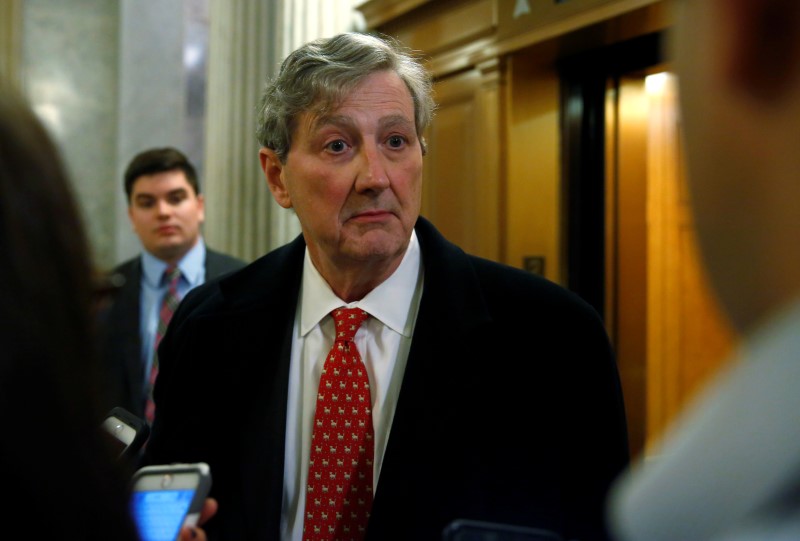By Dustin Volz
WASHINGTON (Reuters) - A Republican U.S. senator warned on Sunday that Facebook Inc (NASDAQ:FB) may need to be regulated to address concerns about the company's privacy and foreign propaganda scandals, saying they may be "too big" for the social media company to solve alone.
"My biggest worry with all this is that the privacy issue and what I call the propagandist issue are both too big for Facebook to fix, and that's the frightening part," Senator John Kennedy said on CBS's Face the Nation.
Asked if lawmakers need to seek regulations on Facebook, Kennedy replied: "It may be the case."
Facebook Chief Executive Mark Zuckerberg will appear before the U.S. Senate Commerce and Judiciary Committees Tuesday to address questions about how his company handles its users' data.
While some Democrats have suggested laws may be required to police Facebook's data privacy practices or limit foreign interference on its platform, Kennedy's openness is significant because Republicans generally support free-market principles and are loath to regulate U.S. companies.
Kennedy, a member of the Senate Judiciary Committee, said he wanted to ask Zuckerberg on Tuesday if Facebook had the ability to know the identities of the hundreds of thousands of entities that purchase ads on its site.
"I don't want to hurt Facebook. I don't want to regulate them half to death," Kennedy said. "But we have a problem. Our promised digital utopia has minefields in it."
Facebook on Friday endorsed legislation known as the Honest Ads Act, which is aimed at countering concerns about foreign nationals using social media to influence American politics.
The legislation would expand existing election law covering television and radio outlets to apply to paid internet and digital advertisements.
The legislation, introduced last October but not yet passed, is aimed at countering concerns about foreign nationals using social media to influence American politics, which is part of the investigation into possible Russian meddling during the 2016 U.S. presidential campaign. Russia denies involvement.

Under the act, digital platforms with at least 50 million monthly views would need to maintain a public file of all electioneering communications purchased by anyone spending more than $500.